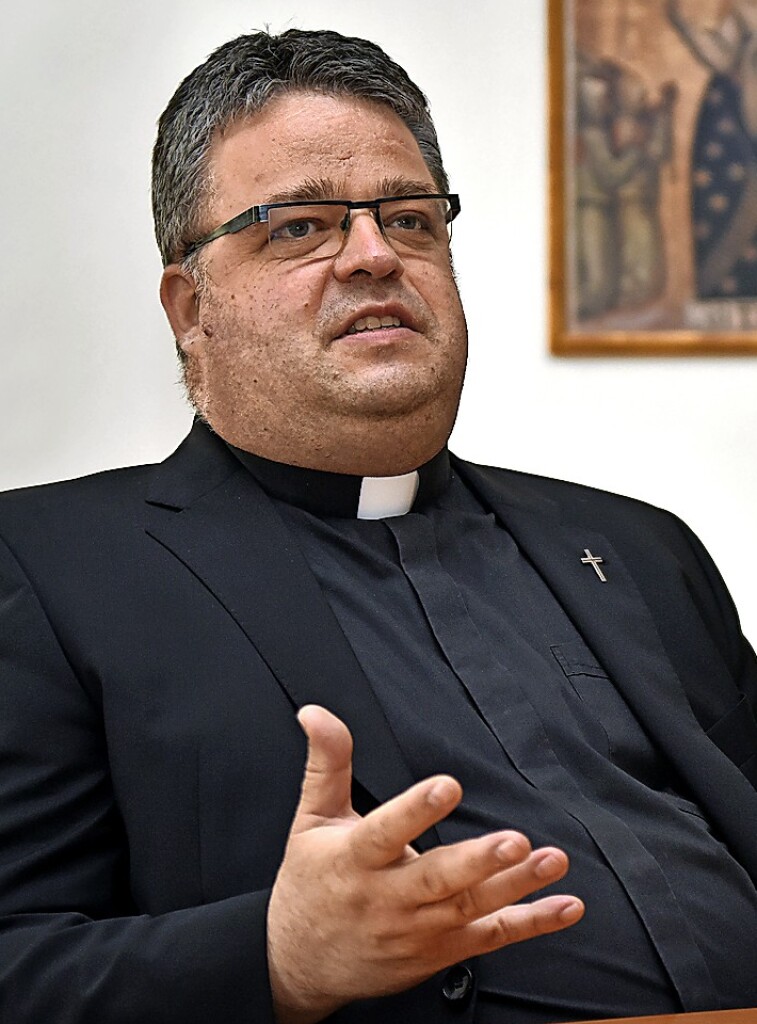Christoph Neubrand, the new Vicar General of the Archdiocese of Freiburg, would like to remain a pastor as manager of the Archdiocese.
. The Archbishop of Freiburg, Stephan Burger, is currently recruiting his top staff preferably in Hohenzollern. Alexander Halter (57), the new Freiburg cathedral priest, worked as dean in the “extra-Baden” part of the Archdiocese of Freiburg, as did his predecessor Christoph Neubrand (50), who was promoted to the office of vicar general on September 1st. After only two years as a cathedral priest, Neubrand assimilated quickly in Breisgau: “I feel like a Freiburg veteran,” assured the native Sigmaringer in an interview with the Badische Zeitung.
“The absolute trust and the feeling that we have the same basic assessments”: This is how Burger explains his decision in favor of Neubrand and thus against confreres who have also speculated on this position on the diocesan executive floor. Canon law (see “Info”) describes the vicar general as the “alter ego” of the de jure, still “omnipotent” bishop. Burger puts it this way: “The vicar general must know what makes the archbishop tick.” Neubrand, who is much more powerful in the diocese administration than Burger’s auxiliary bishops Christian Würtz and Peter Birkhofer, wants to “be more of a vicar than a general,” as he says.
In an interview, Neubrand, ordained a priest in 2000 by the then Archbishop Oskar Saier, convinces with modest self-confidence. At the age of 37 he was elected the youngest dean of the archdiocese; just as unusually early, at the age of 46, Archbishop Burger gave him the title of “ecclesiastical council”. Since 2019 he has worked as cathedral priest and city dean in Freiburg. Doubts as to whether he will shoulder his new task in this critical phase for both the Catholic Church and the Archdiocese of Freiburg evidently do not plague him. But the dimension of the abuse scandal continues to damage the credibility of the Catholic Church. This is another reason why both Neubrand and Burger see no alternative to the motto “zero tolerance”: priests, fathers and deacons who attack young people can no longer expect the diocese leadership to cover up their deeds, silently move perpetrators and protect them from prosecution.
Neubrand rejects the idea that his new central role could make him a manager – he wants to continue to be perceived as a pastor in the future. And this despite the mammoth task of redesigning the archbishopric with once more than 1000 parishes via the 224 pastoral care units today in 36 huge parishes with an average of 50,000 Catholics each. He calls subsidiarity “a big issue”: to give the priests and their teams impulses, but to let them shape them responsibly on site.
Neubrand also draws his self-confidence from his conviction that it would not be good “if the archbishop and the vicar general were copies”. He is a little less remote from the “Maria 2.0” initiative than Burger. Neubrand relativizes his no to the ordination of a priestess, albeit cautiously: “If it were possible in the universal church, it would not be inconceivable for me.” The new vicar general does not see any dissent with his boss: “I am not the archbishop’s clone.”
Axel Mehlmann was not, either, who turned 75 in May and is retiring after a respectable career as student pastor, regional dean and cathedral chaplain, and for the last six years as vicar general. The doctorate, 2011 by Pope Benedict XVI. The theologian appointed monsignor has shaped the ordinariate both decisively and decisively on many levels and has hardly allowed himself to be put off by criticism from inside or outside.
–


